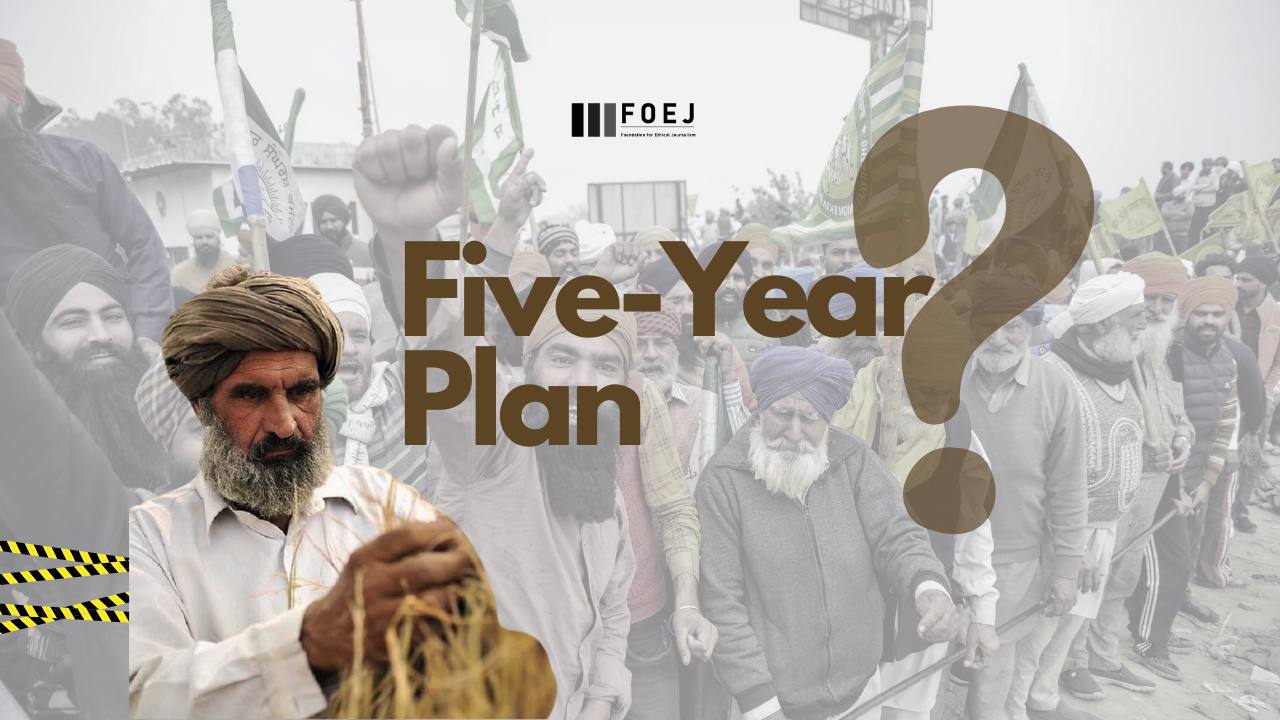The current standstill between the Indian government and farmers who are protesting has now entered its second week, which could have been an important point in the negotiations. Though there were signs of progress towards an agreement, the final breakthrough came after the fourth round of negotiation.
Understanding MSP
The Minimum Support Price, or MSP, is the foundation of farmers’ demands since it represents the long-awaited legal certainty. It protects farmers from market volatility and acts as a buffer against sudden declines in crop prices.
MSP has no legal support, despite its essential function, making farmers susceptible to shifting market dynamics. The Swaminathan Commission’s recommendations, which support a floor price set at least 50% above the cost of production—also known as the C2+50 formula—reflect the farmers’ consistent demand for MSP’s legal protection.

With 23 crops from staples like paddy, wheat, pulses, and maize, the current MSP programme seeks to guarantee fair prices and encourage crop diversity as per the center. These also include ragi, groundnut, soybean, sunflower seeds, barley, rapeseed, and mustard.
The MSP Challenge
The issue of the Minimum Support Price (MSP), an essential safety net for agricultural producers, is at the core of the farmers’ demands.
An important turning point in the continuing negotiations is the government’s recent proposal, which centres on a five-year contract for buying specific crops at MSPs. The proposal’s scope has drawn criticism from farmer leaders in Chandigarh, who have expressed a need for complete coverage across all 23 crops rather than selective inclusion of five crops.
Furthermore, variations in crop cultivation practices between regions highlight the need for customised approaches to deal with different agricultural environments.
Agree On MSP, Farmers And Government?
- A five-year contract to purchase dal or maize would be signed by union cooperative societies such as NCCF, or National Cooperative Consumers Federation, and NAFED, or National Agricultural Cooperative Marketing Federation of India.
- This contract calls for MSPs to purchase the aforementioned crops.
- A website will be created and purchasing quantities will not be restricted.
A long-term plan to boost maize output “as a major feedstock for grain-based ethanol supply” is what Mr. Goyal said the offer is a part of.
He clarified that it will protect Punjab’s farming industry, raise the groundwater table, and prevent the already stressed area from going arid. As part of its “crop diversification” efforts, the government fixed the MSP for maize last year at Rs 2,090 per quintal, up from Rs 1,760 in 2019, in an attempt to promote the crop.
Groundwater concerns have been raised in the past as well; in November of last year, the Punjab Supreme Court issued a warning, urging the province to change to maize. This was discussed during a hearing about the Delhi region’s air quality pollution, which is caused by burning farm (paddy) trash. In 2022–2023, a projected record 346.13 lakh tonnes of maize were planted.
By providing a minimum price floor to protect farmers from market instability, MSP functions as a crucial tool for market intervention. However, MSPs do not require government procurement since they lack legal support, a situation that the protesting farmers aim to close. Concerns about MSP erosion were brought to light by the controversial Farmers (Empowerment and Protection) Agreement of Price Assurance and Farm Services Act, emphasising the necessity of extensive reforms.

Beyond MSP: The Comprehensive Needs of Farmers
The demonstrations represent larger complaints, including calls for the cancellation of debt, a freeze on electricity rates, and an end to previous disputes with the law. The need for compensation for previous losses, the reinstatement of the Land Acquisition Act, and justice for the farmers killed in Lakhimpur Kheri highlight the complexity of the issues faced by farmers.









